The common test facing Mosul, Iraq and the entire Arab world - By Rami G. Khouri, The Jordan Times
The Jordan Times
The battle for Mosul that has been unleashed this week will focus much attention in the immediate future on a set of conditions that are particular to northern Iraq.
Yet, there should be no doubt in anyone’s mind that the evolution of Mosul and post-Mosul capture a set of common challenges that apply across the entire Arab world.
The core of these is simply the challenge to shape a normal and relatively efficient country — any Arab country will do — that is stable, productive, economically and environmentally sustainable, and is defined by citizens who feel committed to the common national well-being because the state offers them and all their fellow citizens dignity, opportunity, security and equality.
We have many Arab countries with fine attributes and achievements, but none of them meets these criteria. This is because they variously depend on unearned oil and gas income, are built mainly by foreign workers, require massive foreign aid to remain afloat, rely on foreign military support to remain intact (Russian, American, Iranian, British, it does not matter, we are not choosy, any foreign army will do), and produce only a small fraction of their own basic human needs, relying instead on imports.
Mosul and Iraq capture many of these problems, and so also clarify the big tests to come, as we appreciate better when examining how we got here.
The fact that Mosul was taken over by Daesh two summers ago without a serious fight from Iraqi armed forces, police or citizens captures the low point of Iraq’s dysfunctional statehood since the Anglo-American war on it in 2003.
Here is the uglier truth: Neither the corrupt, inefficient and fragmented government then nor the brutality of the Daesh rulers now is a totally unusual phenomenon in the modern Arab world.
They are only a few degrees more extreme than the poor governance and widespread authoritarianism, autocracy and political violence that are common to so many Arab countries.
This is because the modern Iraqi state as we have known it in the past century was never defined, infused with values or credibly validated by its own citizens.
Its borders, power structure, policies and everyday conditions of its citizens were always the result of foreign imperial powers or indigenous, homegrown dictators.
It is a massive, cruel, but logical, irony that many of the key leaders who founded and managed Daesh were former intelligence and security officers in the Iraqi Baathist government that ran the country for decades under Saddam Hussein.
The almost seamless transition from the brutal Iraqi regime to the slightly more brutal Daesh is a shame that demeans the modern Arab world from both ends of this linear equation of gruesome statehood.
It is also an analytical lens through which to ask what happens after Mosul is liberated and Daesh is defeated as a ruling force in those areas it has controlled since mid-2014 in Syria and Iraq.
We should not get lost in the particularities of Mosul and the battle to liberate northwestern Iraq, decisive as they are: Iraqi sectarian tensions; the quality of the rebuilding Iraq armed forces; the nature and efficacy of reconstituted police force that can maintain security in both Sunni- and Shiite-majority parts of Iraq; the aims and actions of the Kurds in their autonomous region in northern Iraq; the concerns of Turkey and its active military in Iraq and Syria; Iran’s desired role in Iraq; and, whether Iraqis can end the current dysfunctional national governance system that is riddled with corruption, ineptitude, in-fighting, sectarian suspicions and resentments, and massive instability.
All these factors and a few others (especially foreign powers’ interventions and the condition of next door Syria) will determine how Iraq evolves in the months and years ahead, and whether it can create a national governance system that is at once efficient, inclusive and, most important of all, legitimate in the eyes of its own people.
Parallel with this is the challenge of creating an economy that is not anchored mainly in geology and oil, foreign aid or corrupt crony capitalist systems that persist due to the lack of accountability to the citizenry.
Rather, what this and all other Arab countries desperately need is an economy that can employ its own people, create wealth, assist the most needy and sustain itself in perpetuity.
Mosul’s fate will be a micro version of the bigger test ahead to achieve coherent, stable, equitable and sustainable statehood for all Iraqis.
Mosul captured in recent years the worst aspects of modern Arab governance through authoritarian brutality.
With the grace of God, some sensible power-sharing agreements from the many decent and able Iraqis, and foreign armies leaving us alone for a few years, perhaps Mosul and Iraq will seize that elusive prize of normal, stable statehood that has teased so many Arabs for so many years.
Latest News
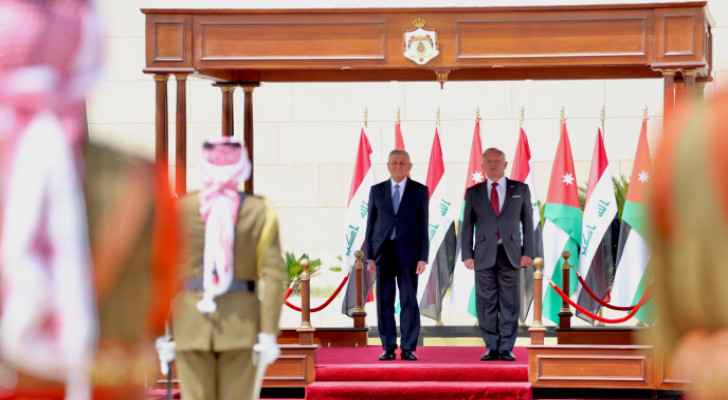 King Abdullah, Iraqi President discuss Gaza in Amman talks
King Abdullah, Iraqi President discuss Gaza in Amman talks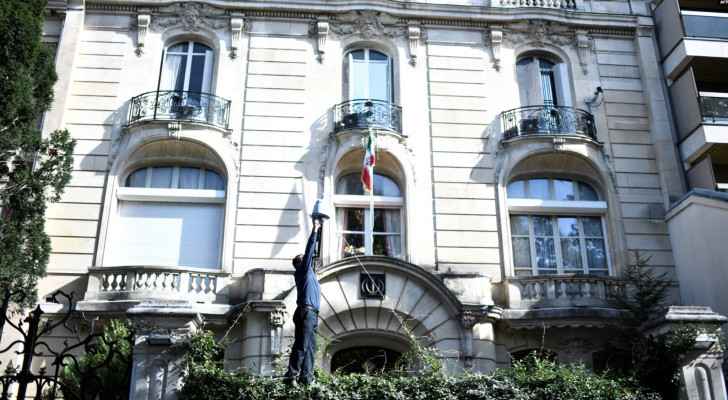 France summons Iranian ambassador over strikes against “Israel”
France summons Iranian ambassador over strikes against “Israel”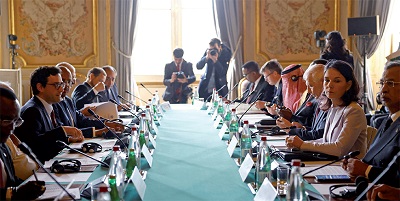 France hosts Sudan talks a year into 'forgotten' war
France hosts Sudan talks a year into 'forgotten' war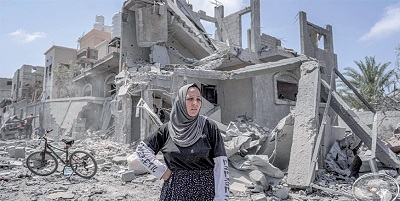 Israel presses on in Gaza as world awaits reaction to Iran attack
Israel presses on in Gaza as world awaits reaction to Iran attack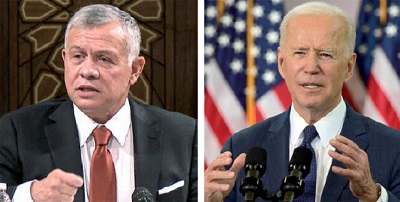 King, Biden discuss regional de-escalation, need to reach Gaza ceasefire
King, Biden discuss regional de-escalation, need to reach Gaza ceasefire
Most Read Articles
- France hosts Sudan talks a year into 'forgotten' war
- Biden says wants to prevent Middle East conflict spreading
- Safadi, Hungarian counterpart discuss Israeli war on Gazs
- Hong Kong conditionally approves first bitcoin and ether ETFs
- King warns of region spiraling into new cycles of violence
- King, Iraq president hold talks on current developments, situation in Gaza
- Even when it seems hopeless, we must never quit - By James J. Zogby, The Jordan Times
- Saudi Shura Council speaker arrives in Amman on official visit
- World urges restraint after unprecedented Iran attack on Israel
- WTO reform is everyone’s responsibility - By Ngozi Okonjo-Iweala, The Jordan Times